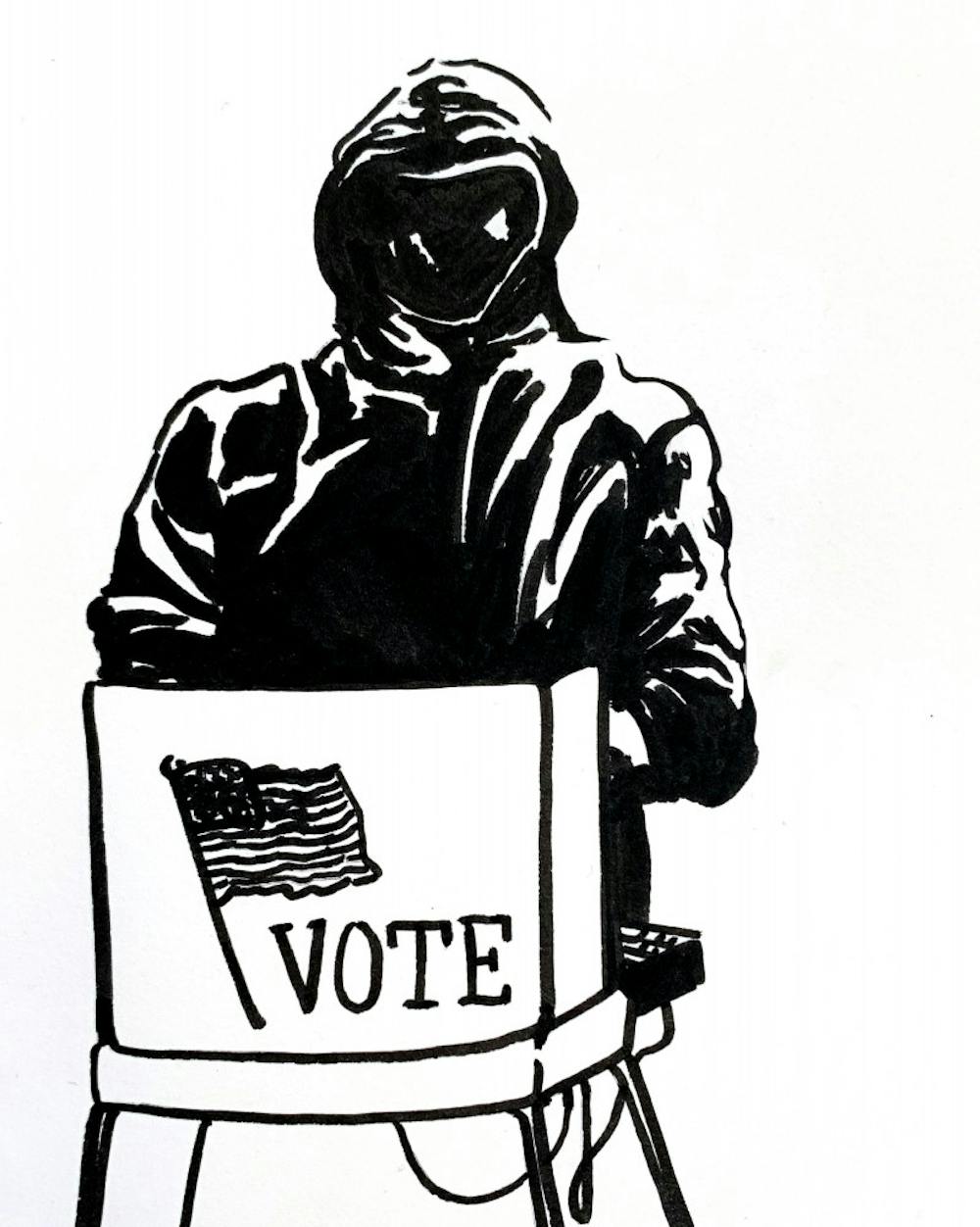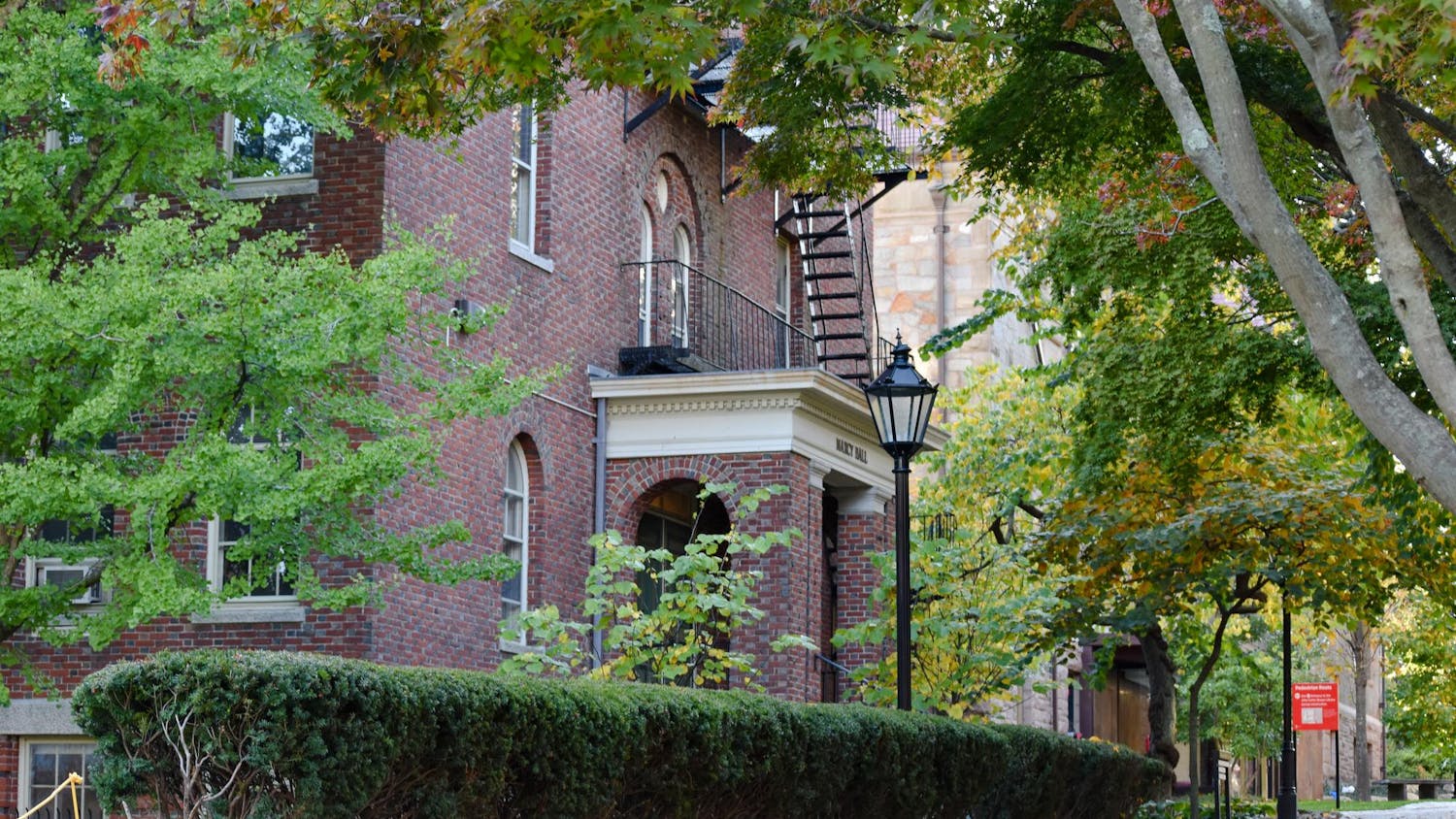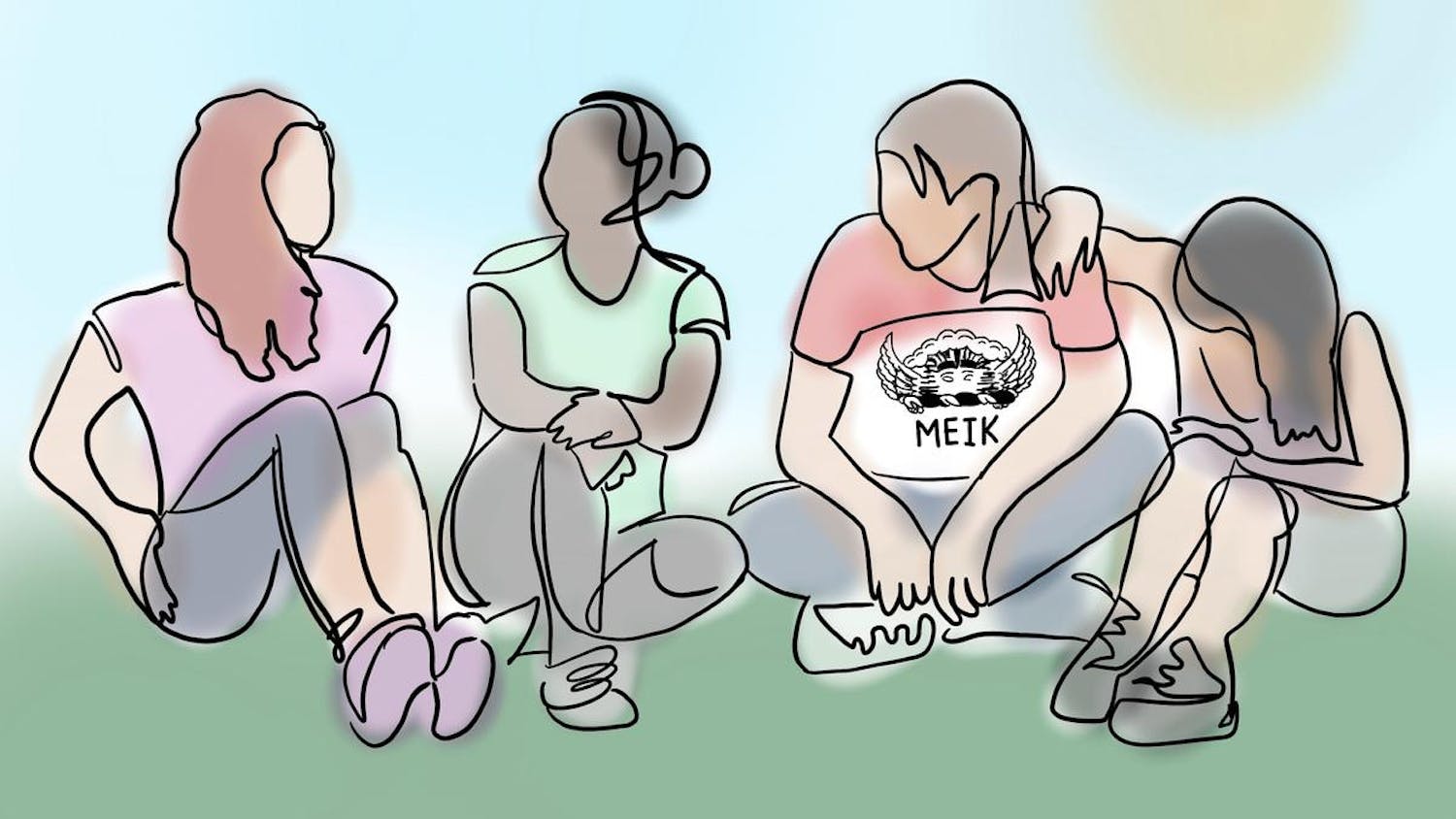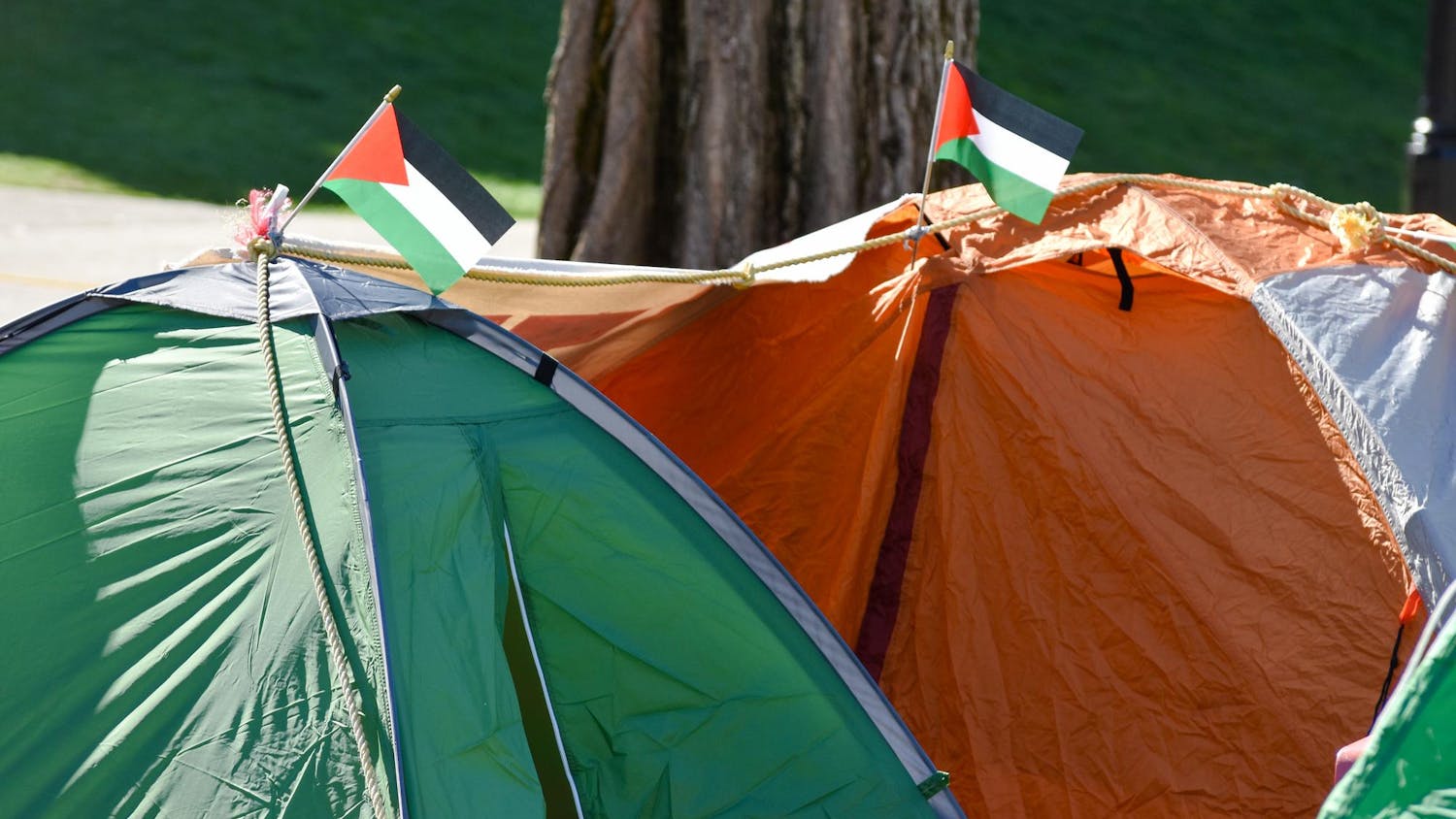The University will suspend classes and offer a paid day off for faculty and staff on federal Election Days going forward and beginning this Nov. 3, making it the second Ivy League institution to do so.
The new University holiday — which will occur every two years for both presidential and midterm elections — is meant to ensure that faculty, staff and students have ample opportunity to vote in major federal elections.
President Christina Paxson P’19 framed the policy as part of the University’s mission to prepare students to be responsible members of society in a press release, describing voting as “one of the most powerful tools we have to impact society.”
Visiting Professor of the Practice of Political Science Richard Arenberg said he has long supported a national paid holiday on Election Day, in addition to other changes to make voting easier.
He said that simplifying the process could help rectify what he called the country’s “embarrassingly low level of participation."
While 80 percent of the faculty present at their Sept. 8 meeting voted to approve the new University holiday, some faculty members had reservations about the new Election Day policy.
Professor of Physics Brad Marston voted against the new holiday because he considered the policy “self-indulgent,” given the already flexible schedules of faculty, and believes it would contribute to a public image of privilege for the University since few schools or employers give Election Day off.
“Brown sometimes rightly gets a bad rep in the public eye because we have a lot of privileges that other people don’t have,” Marston said. “I was concerned that this would be yet another one.”
At the faculty meeting, Anne Hart, professor of neuroscience and graduate program director for the neuroscience graduate program, and Christopher Schmid, professor of biostatistics and chair of the Department of Biostatistics at the School of Public Health, also voiced concerns about losing a day of instruction during an already shortened semester.
Provost Richard Locke P’18 addressed those concerns, stating that the University felt that a single missed class “would not be a serious problem for instruction.” Locke noted that professors are free to reschedule missed classes during the reading period.
Paxson added at the meeting that the asynchronous nature of many courses this semester would reduce the impact of a single missed day of class.
Despite some criticism, advocates for voting on campus praised the new policy for its potential to enhance civic engagement among University community members.
The University is only the second school in the Ivy League to institute a holiday on Election Day. Columbia started giving students the day off in 1968, according to the Columbia Spectator. Few schools across the country have adopted similar policies, even as student groups have pushed administrations to do so.
Brown Votes, a student initiative within the Swearer Center for Public Service aimed at increasing voter registration and turnout to 100 percent among University students eligible to vote in the United States, has supported a holiday on Election Day and has advocated for the policy in the past, said co-founder Madison Mandell ’22.
“Ensuring that Election Day (is) off for students, faculty and staff would be the most effective way to make sure that everyone could exercise this important right,” Mandell said. Co-founder Kimberly Collins ’22 described the new University holiday as “a huge step in the right direction.”
College students in the United States typically vote at low levels compared to other groups, and Brown students are no exception.
During the 2016 election, 59 percent of eligible Brown students voted and only about 46 percent voted in 2012, according to findings from the National Study of Learning, Voting and Engagement. Midterm elections see even worse rates — NSLVE data shows that 13.4 and 45.1 percent of eligible Brown students voted in 2014 and 2018 midterms, respectively.
Still, compared to other schools, the University’s student voting rate is relatively high. According to NSLVE data, University students voted at a rate 8.6 percentage points higher than the average for all institutions in 2016, and 6 percentage points higher than the national average in 2018. Mandell said that the current voting rate is “horrible” and should be improved.
Betsy Shimberg, interim dean of the Swearer Center, said that the problem is not registration — it’s turnout. A significant portion of students arrive on campus already registered to vote because some states tie voter registration to driver’s licenses, she said, but only a fraction of those students actually vote.
“It’s not that young people are apathetic or that they don’t care,” Shimberg said. “It’s that we have these established structures that are really complicated.”
Shimberg explained that voting can be more difficult for college students because they often vote by absentee ballot and are frequently voting for the first time at college. She hopes that the new University holiday can reduce barriers to voting for students.
Christopher Wiggins ’21 has successfully voted at college in the past, but still said that the new policy was “an important step of prioritizing voting,” indicating that the University was “really encouraging it as an institution.”
Wiggins, who is an organizing intern at Vote From Home 2020, voted by absentee ballot in his home state of Maryland in 2018 and will do so again this year. He said that many of his friends plan to do the same, but he knows that some plan to travel home because they do not trust their states’ mail voting system — the new off day will make this easier, though the University's COVID-19 guidance against travel may pose challenges.
Over 45 percent of University student voters voted by absentee ballot or by mail in 2016, according to NSLVE data. Over a quarter of students voted in person, and approximately another quarter were unknown. Absentee ballots and mail-in ballots are nomers for the same type of voting and are often used interchangeably.
The deadline to register to vote in Rhode Island is Oct. 4, and the R.I. mail ballot application deadline is Oct. 13.

Ben Glickman was the 132nd editor-in-chief and president of The Brown Daily Herald. He previously served as a metro editor and oversaw the College Hill and Fox Point beat, in addition to writing and editing about city politics, COVID-19 and the 2020 election. He is the co-creator of the Bruno Brief, The Herald's first news podcast. In his free time, he is passionate about birds (also tweeting) and eating way too spicy food.





